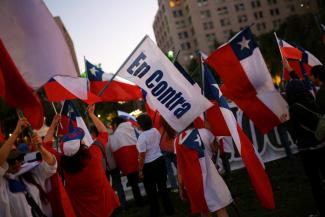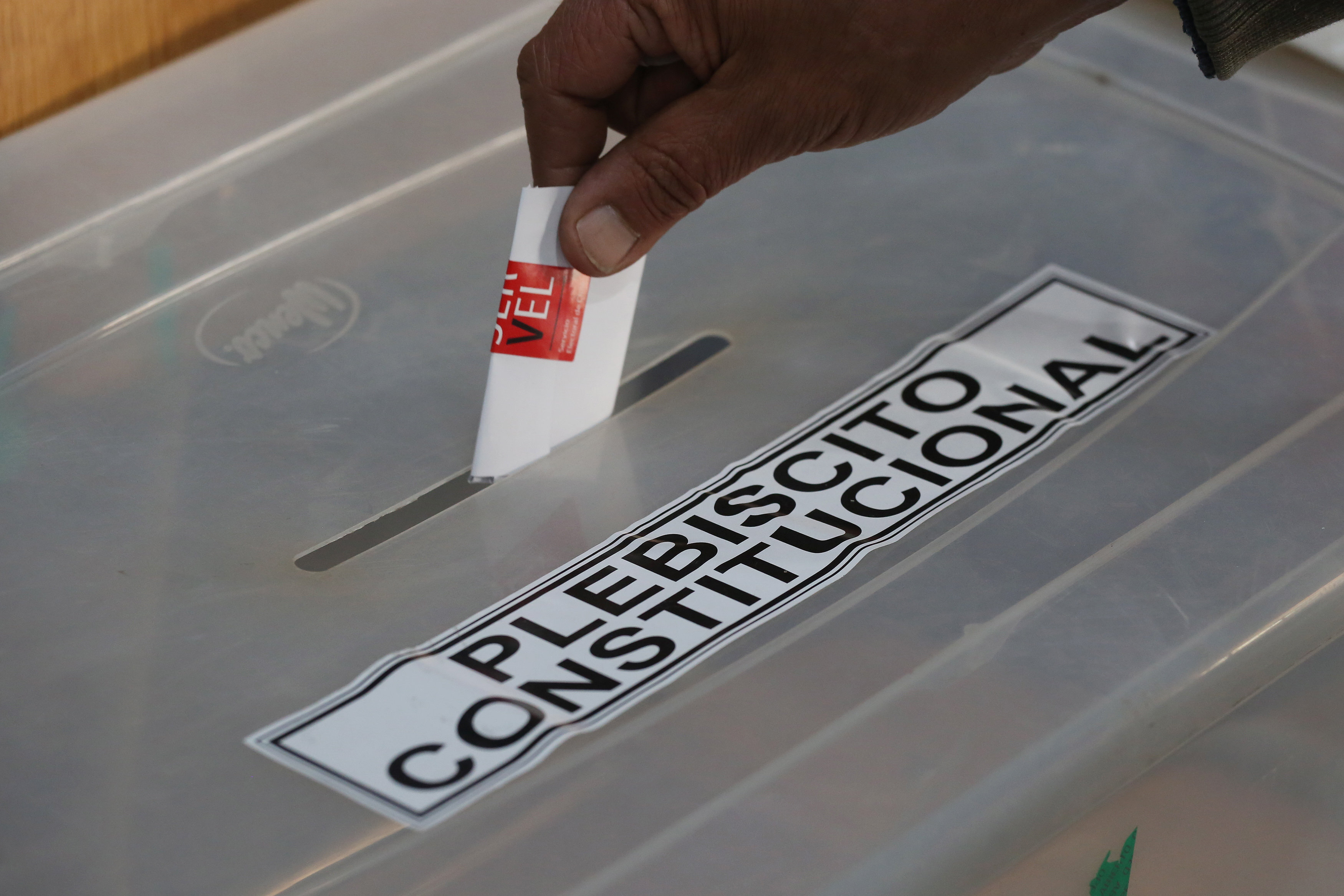Governance
A second “No”

So now what? That is the question the Chilean people are pondering after the results of the referendum on 17 December 2023. In less than a year and a half, the South American country has rejected two different proposals for a new constitution. On 4 September 2022, 63 % of the electorate voted against a constitution proposed by progressives. Now 56 % have rejected the conservatives’ proposal.
Neither of the two options could fulfil the hopes of a now-tired electorate. Discussions about the constitution failed to respond to the social demands of the mass demonstrations of 2019, the so-called Chilean social outburst (“Estallido Social”).
Mistakes on both sides
Four years and two referenda later, there is a prevailing impression of an incomplete uprising and an out-of-touch political class, as well as deep regret about the missed opportunity. Therefore, it’s no surprise that, after the results were announced, one of the most repeated phrases by analysts and political actors was “no one has won here”.
The citizens’ decisions can be explained by the fact that both the left and the right made similar mistakes. Proposals from both camps resembled government programmes, including a distinctly ideological wording. During the referenda, however, the extremes on both sides were neutralised, and the Chilean electorate, known for its pragmatism and centrist tendencies, reacted as expected (and as polling predicted): faced with uncertainty, it chose to strengthen the status quo.
Back to business as usual
“The constitutional process is closed,” Chile’s president, Gabriel Boric, commented in response to the latest referendum. The 37-year-old social democrat heads a coalition that unites the traditional centre-left and more recent groups. Boric was once the driving force behind efforts to pass a new constitution. Now he must attempt to advance at least part of his government programme during his two remaining years in office.
It will not be easy. The legislative debate did not exactly benefit the executive. And the opposition holds a majority in both the Chamber of Deputies and the Senate. There seems to be no political will to promote major changes in social policy. With regard to tax reform, the opposition has declared that an increase in tax revenue should be achieved through an economic upturn – and not by raising taxes, as intended by the government. There is no consensus on pension policy, either.
Sense of security has deteriorated
Meanwhile, Chileans’ greatest concerns are security, health and the economy, as a poll by the think tank Centro de Estudios Públicos showed. In the past year, Chile’s GDP has not grown. Citizens’ sense of security has declined, in part because international gangs have become involved in local organised crime. Against this backdrop, the president’s comment was seen as a good first step, indicating that he will not insist on a third referendum, but instead focus entirely on reforms and citizens’ priorities.
It is unclear what will actually happen. One thing is certain, however: in 2024, Chileans will return to the polls again, this time to elect mayors and regional governors. The next presidential election is scheduled for the end of 2025. In the meantime, Chile’s current constitution, a legacy of the dictatorship of Augusto Pinochet, will remain in force.
Javier A. Cisterna Figueroa is a journalist based in Concepción, Chile.
cisternafigueroa@gmail.com












